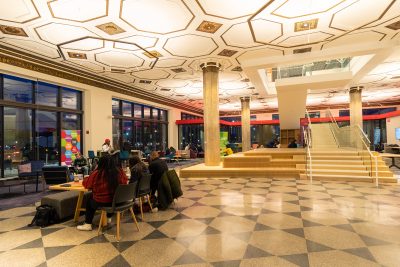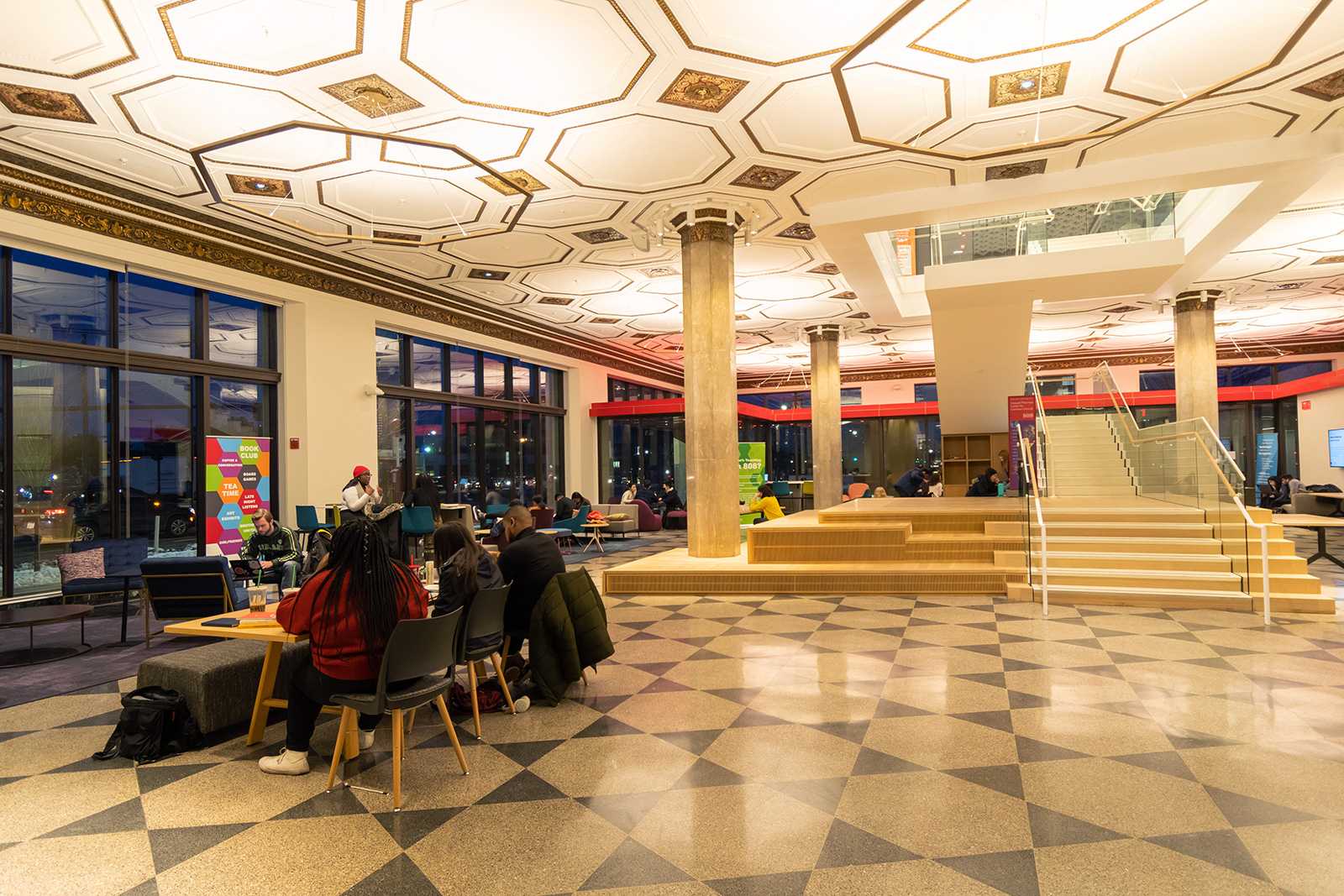While much of Boston University’s campus is limiting student access to buildings, the Howard Thurman Center for Common Ground is attempting to do just the opposite.

The HTC is reopening its spaces to students this semester, but most events will continue via an online format in light of the COVID-19 pandemic.
Students will be allowed to use the Center’s lounges for socially distanced gatherings and discussions. The majority of in-person events, however, have been put on hold for the Fall.
HTC spokesperson Laura Montorio wrote in an email that BU is committed to opening the Center in efforts to maintain its purpose as “the campus living room” of BU.
“In this time of physical distancing and quarantine and isolation, our mission to connect students and build community has never been more important,” Montorio wrote. “We want students to know they can stay socially engaged while physically distanced.”
The first floor of the Center will remain a place for students to socialize and gather in a safe manner, Pedro Falci, associate director of the HTC, said.
Students will have to show their green Patient Connect badge — which demonstrates compliance with COVID-19 testing and attestation — to enter, and the capacity of the lounge will be restricted to 25 people at all times, Falci said. All frequently touched surfaces will be sanitized by staff on a regular basis.
The larger events that usually take place in the Center will instead be filmed by staff and broadcasted to a remote audience. Falci said he believes that despite their online format, these events can remain just as impactful for students.
“I feel confident because of how last semester went, when all of us were sent home in March,” Falci said. “We at the Thurman Center had to think on our feet about how to conclude the semester practically.”
When the transition away from in-person events first happened, the Center expected a decrease in engagement from students. Instead, it saw an increase.
“I was truly surprised that we not only maintained our attendance numbers consistently,” Falci said, “but we actually got new students to turn out to these programs.”
Falci said this can likely be attributed to a rise in students’ need to connect with each other and their campus. The convenience of online events has also played a big part, he said.
“It’s more flexible and more accessible to people,” Falci said. “You don’t have to factor in time to get somewhere and you can sort of do it at your own leisure.”
Yet the transition has not been without its drawbacks, Falci said, calling it a “double-edged sword.” Events cannot be as personable or energetic in an online format, but HTC staff are doing their best to make up for it, he said.
The Center’s calendar offers a roster of virtual discussions — such as weekly sessions of Coffee and Conversation, an HTC staple — and other Zoom events where students can build bonds with one another.
Event spaces in the HTC, Falci said, have been converted into classrooms to aid the University in achieving a safe hybrid model of education that allows students to learn in larger classroom spaces for better social distancing.
Archelle Thelemaque, an HTC student ambassador, said she believes it’s unrealistic to expect the Center to feel the same this semester, but that this does not necessarily mean the experience will be worse.
“A lot of community building is a very in-person task,” Thelemaque said. “And a lot of it has to do with body language and has to do with the side conversations that you really can’t capture through an online medium.”
The HTC will mold its programs to adapt to the needs of students in order to help them bond in a world where most communication will have to be digital, Thelemaque said.
“It will look different, of course,” Thelemaque said, “but I really think that there are ways to to work around it so we can still have that sense of community.”
Edona Mujaj, a sophomore in the College of Arts and Sciences, wrote in an email that she believes the atmosphere of the HTC is still solid. While conversations are slightly more difficult, the energy is there.
“The HTC has been able to adapt very well to the circumstances,” Mujaj wrote. “They’ve come up with a way to keep the community intact, and safe during the pandemic.”
Chika Okoye, a sophomore in the College of Communication, said she is excited to engage in the online HTC events this semester.
“I never got a chance to last semester because I was super busy,” Okoye said. “So, coming into this semester I’m excited to engage in that.”
She said the digital format has made it far easier to make time to attend, as she does not have to factor in travel time anymore.
Okoye said she is also looking forward to making use of the lounge to study. She said the HTC is a nice open space that offers more privacy for students than others, such as the Mugar Memorial Library.
“I get why people are hesitant to go, though, because we are in the midst of a pandemic,” Okoye said. “But as long as there are safety protocols in place I feel like it will still be a nice place to study or to go to.”
























































































































